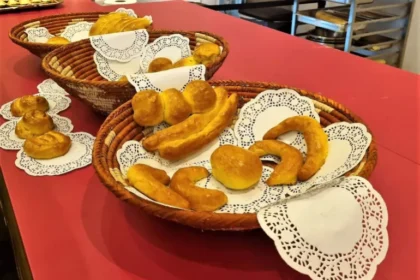The world is collapsing: I open Instagram reflexively in the morning like any other Gen-Z insomniac and immediately regret it. I realise I have once again broken my no-screen rule for mornings. But worse than breaking the rule is the emotional whiplash that hits me as I scroll.
I see a reel of a baby, fighting for survival, bruised and scarred, back dropped against the woeful cries of its family. I stare at it for a few seconds, and decide it is too much for me to take in.
Tap.
The next story is about an influencer sharing a detailed description of her new favourite coffee. Sweet, I think.
Another click.
I see an elderly woman crying, screaming and cursing the Arab world for its indifference as she accidentally drops a bag of flour in the sand. Some part of my heart breaks, but only for a few seconds, until yet again:
The next click.
This one brings me to an application deadline for an internship that I desperately need to apply to.
I experience numbness, heartbreak, career anxiety, rage, and grief — all in under a minute. How are we supposed to digest information that spans between the possibility of the world entering a third world war and the fact that we have to submit yet another application so our resume looks good?
A quiet, collective grief plagues our generation. We carry it in silence but are well aware of its existence. Not only are we struggling to come to terms with the brutality we see through our phone screens, but we’re also perpetually trying to cope with the shattered idea of “big dreams” we were raised upon. We were told to dream big, with mantras of “change the world!” embedded in our memories before we learnt our names.
The world is collapsing
But the world kept crumbling in the background. At the same time, there is a demand for us to remain productive. Even as the world seems to be collapsing, the pressure to remain proactive has not diminished. Finish the assignments, file applications, polish the resume, network, smile, and post. It’s the roadmap to a successful life, they say.
There is something so dystopian about the fact that the world seems to be in shambles and we’re still expected to make a successful LinkedIn post. It reminds me of Titanic, when the ship is so close to sinking and the musicians on board continue to orchestrate with death at their front steps. We are expected to be like those musicians.
It’s a bizarre idea. How can we engage in discussions about philosophical thinkers like Marx and Durkheim in lecture halls without addressing the topic of Palestine? Could we discuss this topic more frequently? Why has this conversation not seeped into every aspect of our being? It’s not even just Gaza — the moral compass of our time — but also Sudan, Congo, Lebanon, Syria, Kashmir, immigrants in the US, the climate emergency, the economic collapse, the girls murdered in our very own cities, and so on.
It has become a breeze for us to pretend that all of this doesn’t exist. Ignorance is bliss, they say. Perhaps this is true. But there is something so carefully man-made about the capitalist system that enables numbness and political apathy. It keeps us distracted enough, or numb enough, to not revolt. In “When did we learn to stop yearning?” Ava Doherty argues that political indifference is a calculated tactic used by the ruling classes to weaken opposition. The less shocked we are, the less we behave. In such a world, feeling emotions becomes an act of resistance. To grieve is resistance. To talk is resistance.
We cannot change the system overnight, but we can care, at the very least. Even if we take just one small, brave step, it would suffice. Not all of us can get on board the Madleen. But the Madleen represents something more than just a ship bound for Gaza; it represents what courage can look like for each of us. We must bravely step out of our comfort zones to truly claim that we accomplished more than just scrolling.
The most important takeaway here is that you’re not powerless. You might have been made to feel that way, but your choice to resist numbness and consequently choose to take any step, whether that be boycotting, protesting, or having difficult conversations — it all matters.
So yes — study, intern, get that coffee, have fun with friends, and eat your favourite food. But while you’re at it, carry the world and its injustice with you. Don’t ignore it, and certainly don’t pretend it doesn’t exist. Allow your grief to transform you, and let it guide you through the process of mourning. Carry Gaza in your sentences. Carry the planet in your choices. Carry the girls murdered in your cities in your prayers.













